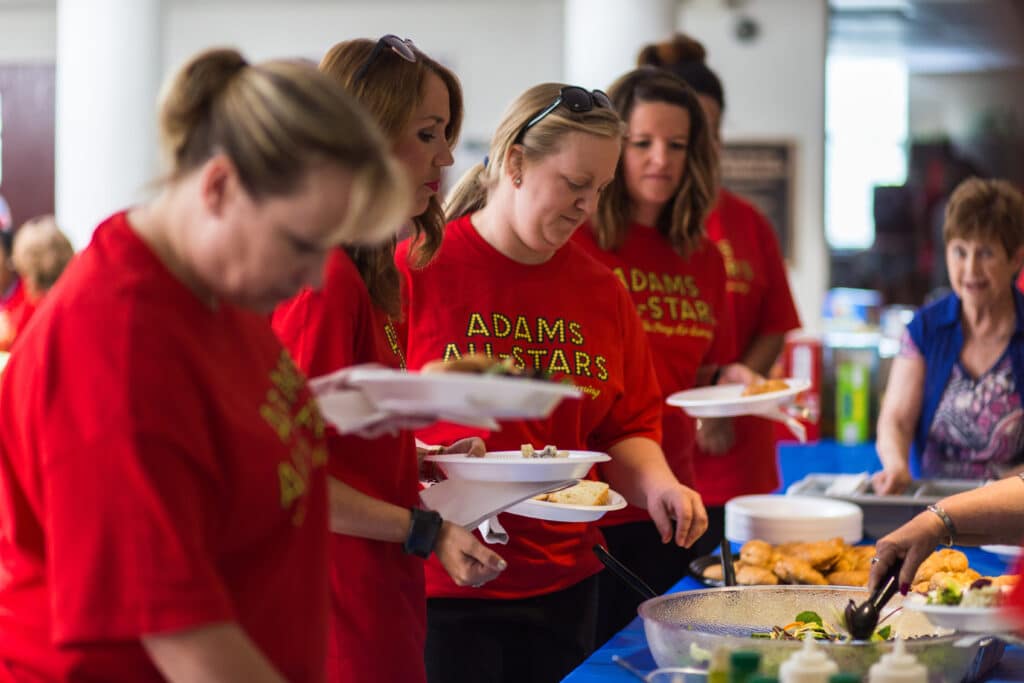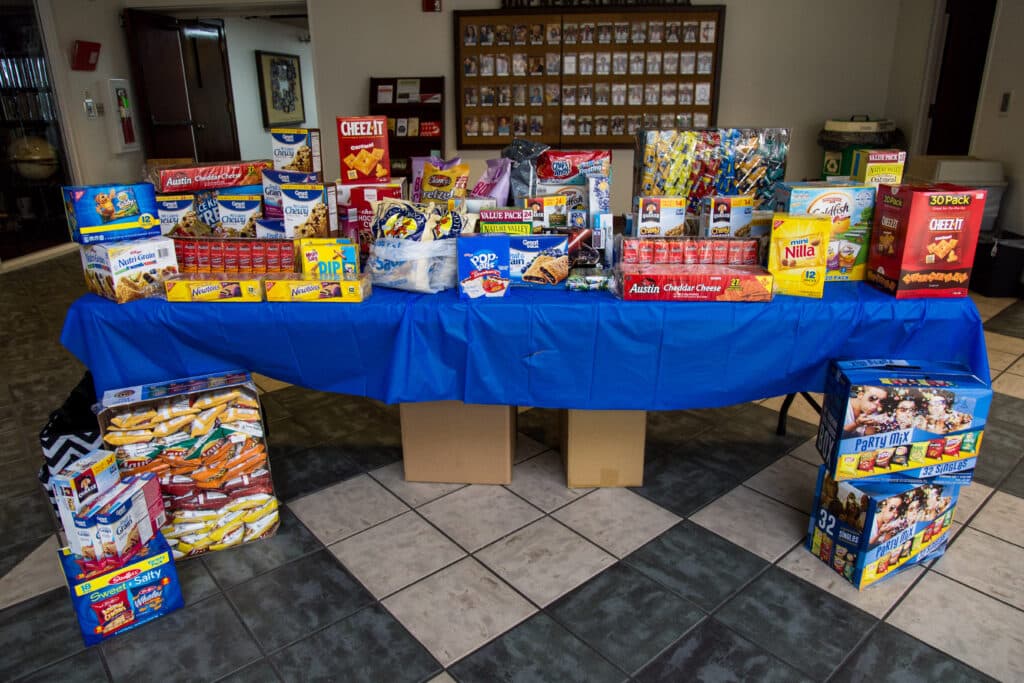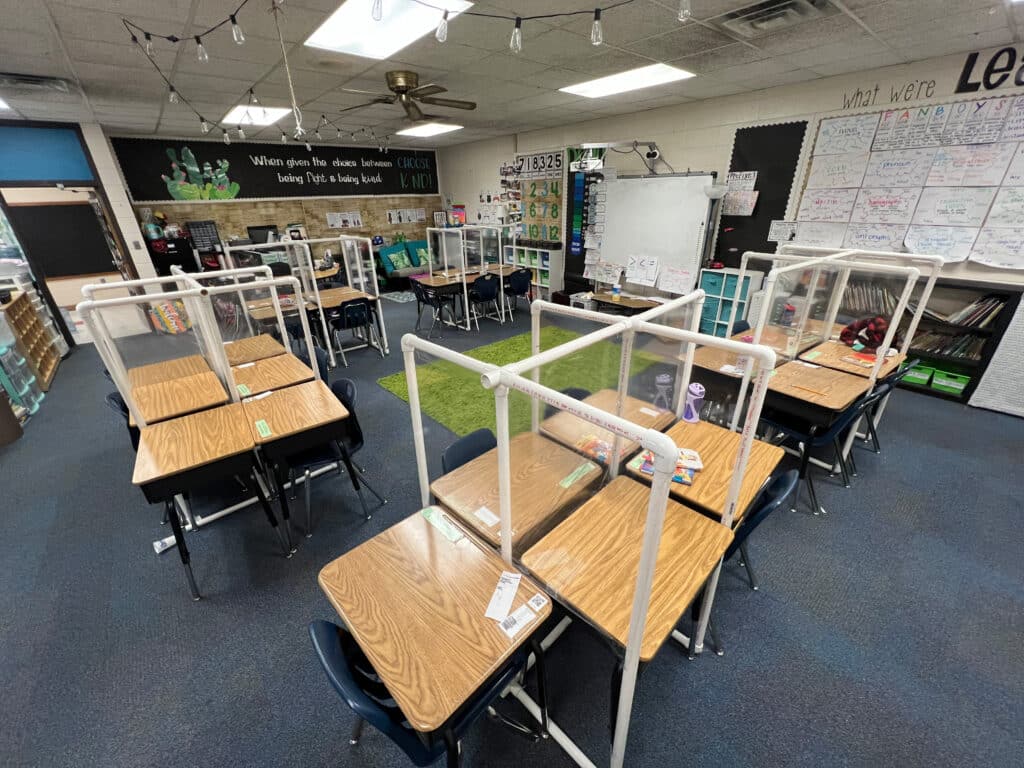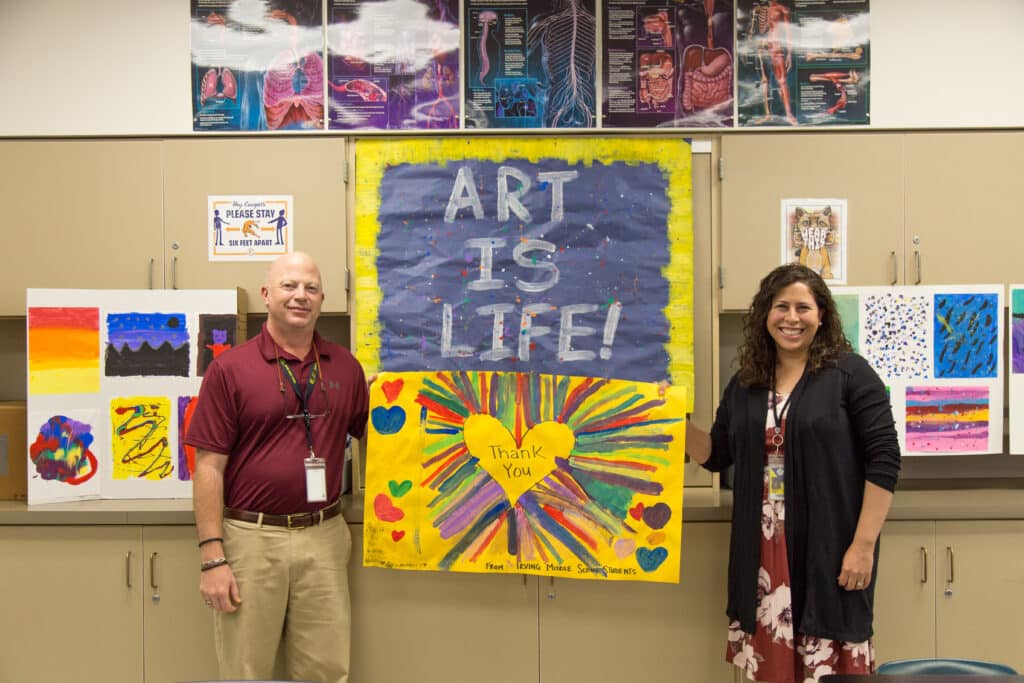DEEPLY ROOTED: Our Norman School Partnerships
It was a freezing winter day in 2015. Kristy Varva was the Children’s Director at McFarlin and she had just helped locate a coat and warm clothes for a mother and child who needed assistance from McFarlin’s outreach ministries. As a former educator, Kristy knows firsthand the challenges kids face when their most basic needs aren’t met and shares why that’s an obstacle for kids. “Typically, if you have a student with significant needs, especially if they don’t have enough food to eat or clothes they need, if your children don’t have their basic needs met then learning is going to be even harder for them.”
She pondered on her time as a teacher and wondered if there might be a way for McFarlin to partner with schools and give tangible support to teachers and students. After reaching out to contacts in Norman Public Schools, the district identified three elementary schools with the most need—Adams, Jackson and Madison. The first year of this partnership provided opportunities for volunteers to support teachers and students in various ways. Not every child learns in the same way and it can be a challenge for kids to catch up if they fall behind, especially with insufficient resources and class sizes too full to allow teachers extra one-on-one time with students. McFarlin mentors were able to offer support by coming in for at least 1–2 hours a week to help students with their reading or math skills.
Teachers and school staff began to see the positive effects of this partnership, and the level of trust between McFarlin and the schools grew. As the mentorship program flourished, other needs began to surface and schools began reaching out to McFarlin with other opportunities. “A lot of needs started presenting themselves and, with a little bit of networking, people began providing and it was amazing what God was doing through our church,” said Varva.


McFarlin’s congregation provided support through school supply drives, teacher appreciation lunches and school paper drives. McFarlin began including children from each school in our Angel Tree gift drive each Advent season. McFarlin’s food pantry also expanded its reach and began offering monthly grocery pickups at each partner school. In 2018, Irving Middle School became our first middle school partner and we began serving them through our monthly food pantry pickups.
This partnership continued to grow, but in 2020 the pandemic presented challenges unlike anyone had ever seen. Due to safety concerns, our mentoring program was paused indefinitely. Schools began operating remotely and we were unable to offer the in-school support, teacher luncheons, and other gatherings from past years. Despite the setbacks, McFarlin’s commitment to its partnerships was steadfast and rooted in deep trust. Schools knew they could reach out to McFarlin, even in times of uncertainty, even when they felt like they didn’t have support from others. Scott Meier, Director of Missions, began receiving calls about specific needs at our schools. “Because we’ve had such a long-standing partnership with these schools as a church—with Kristy, then with Wendi and now with me—there’s a high level of trust,” Meier said. “We have a reputation in all of the schools that when they need something, they call us and we make it happen.”
For some, that may be simple, but for teachers that’s huge on a very basic level of receiving support from their community at a time when they don’t feel supported.
Rebecca Grider
When Adams Elementary called needing personal protection equipment (PPE) for student desks, our Director of Student Ministries, Austin Leeviraphan organized a group of McFarlin students and adults to build the prototype PPE desk units that ended up being used in classrooms. 3rd grade teacher and lifelong McFarlin member Sydney Paden saw a difference in her classroom almost immediately. “Once we got the PPE it was really cool because we got to face them towards each other with the plastic shield in between and there was a big difference. They had their space, they felt safe, but they were finally looking at each other and getting to talk to each other and interact with each other and be part of a group instead of a singular island. Because of their interaction I really did see a difference in their growth at that time.”

When Madison Elementary wanted to remodel the teachers’ lounge to provide an uplifting space for their educators, McFarlin provided the refrigerator. We also expanded our monthly grocery deliveries to twice a month for each school, supplied copy paper to Jackson and provided snacks and cleaning supplies to classrooms.
Among the requests for support this past year are two specific stories of seemingly small donations that have made a life-changing and long-term difference in the lives of students and their teachers. Irving Middle School partakes in an enrichment program that allows students to choose an experiential learning class every 4—5 weeks. The subject of each enrichment class reflects a specific passion each teacher has outside their regularly taught subjects. Past classes have taught middle schoolers baking, cartography, comic book drawing with an emphasis on female superheroes, recycling, chess and many more.
One of the classes, “Art is Life,” is taught by 6th grade science teacher, Dub Grisham. Mr. Grisham has a deep connection to art, and as an artist himself, he knows the power an art class can have in students’ lives, especially if they don’t have the opportunity for a creative outlet.
“For some it’s hard to get past the I can’t—I don’t do things like this, I’m not good at it—and that’s one thing I work on too … believing in yourself.” Because these elective classes aren’t offered at every school, they aren’t included in the district budget, so it’s left to teachers to pay for any supplies the students need for these classes.
Rebecca Grider is the Math Interventionist, Enrichment Program Coordinator, and “many-hats-wearer” at Irving, and she knew that these classes were impacting kids in a positive way. Not wanting to stifle any of the classes due to a teacher’s inability to pay out of their own pocket, she looked for a way to solve this problem. Teachers at Irving told her that McFarlin was a trustworthy community partner, always ready to help, so she spoke to Scott Meier about a need for paint for Mr. Grisham’s enrichment class. When gallons of paint showed up for his next class, he was overwhelmed with gratitude. Having the supplies for his class has allowed students to get out of their creative comfort zones and believe in their creativity. “I feel like a lot of students these days don’t really think they have any talents,” Grisham said. “This gives them that opportunity, and sometimes it’s a huge hurdle to get over that and just get them to believe in themselves … That’s the biggest reward for it. Just seeing the students break down that barrier [to see] ‘I am good at this’.”
In addition to offering creative, experiential learning through the enrichment program, Irving and other Norman schools offer reading programs for students who are behind in their reading level. One of the curriculum tools used to improve reading are decodable books. Highly recommended by reading specialists and the district, these books allow students and teachers to track a student’s progress through how many words they’ve read correctly with a focus on leveling up. Due to the high cost of the curriculum, there are only a small number of books that are spread throughout the district and many teachers are left without access to this resource.
Out of the 800 or so students that attend Irving, 20–30% are high-risk for low-level reading. The reading specialist at Irving has trained other teachers in special reading skills to help students, but the need is greater than the number of teachers available, which is why decodable books are such an invaluable resource for teachers and students.
“We don’t have enough teachers for every high-risk child,” Rebecca explains, “so having decodable books and resources to help these teachers is a huge part of that.” When she reached out to the district for decodable books, she was told they had already distributed them to other schools who needed them. Rebecca remembered how McFarlin had helped with paint supplies, so she reached out to Scott to see if it was even a possibility. When Scott told her McFarlin would be able to purchase an entire set of decodable books, she was in shock. She told the reading specialists and teachers, and they couldn’t believe it.
“For some, that may be simple, but for teachers that’s huge on a very basic level of receiving support from their community at a time when they don’t feel supported,” shares Rebecca. “It’s very possible that your donations have made teachers feel appreciated and might have extended their time here, in a time where that might have not been possible.”
Teachers and students who are currently using the books have already seen the difference it’s making. Students who were reading at pre-K levels have almost reached 2nd grade levels, and the impact this resource has on these students goes beyond this year or their time at Irving Middle School. “You’re teaching a child to read,” says Rebecca. “I don’t know a more powerful gift you could give to a student than giving them the power to read. And not just barely read but you’re helping them build confidence to read well. And you can’t really go through school without having a very firm foundation in reading. And so it is possible that you’re helping retention rates and students staying in school longer instead of dropping out at 8th grade because now they can read.”

I don’t know a more powerful gift you could give to a student than giving them the power to read.
Rebecca Grider